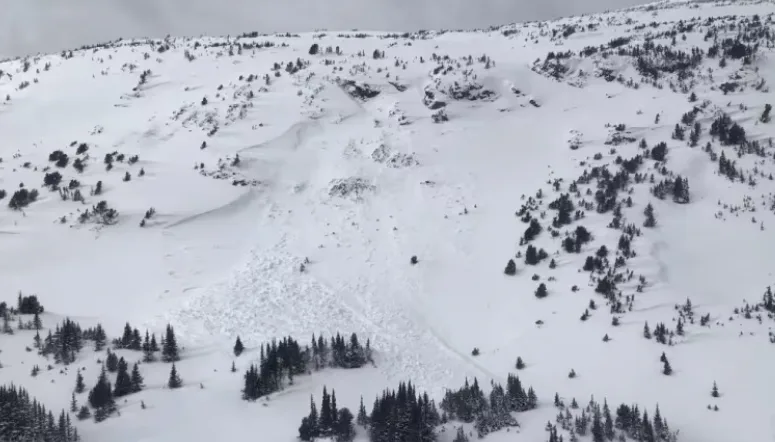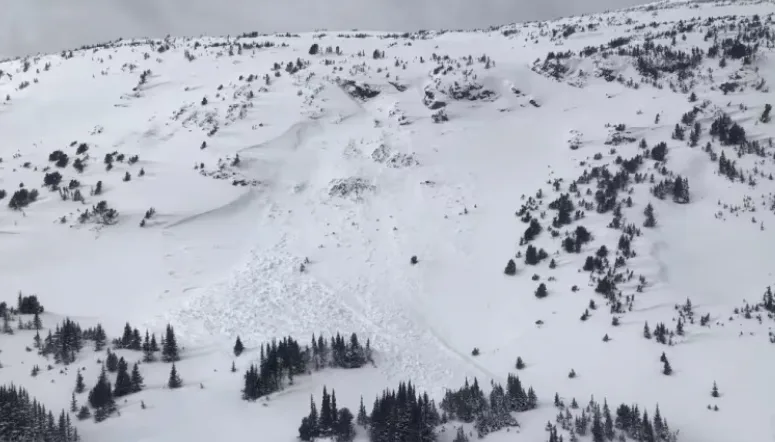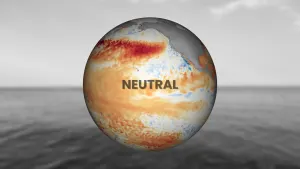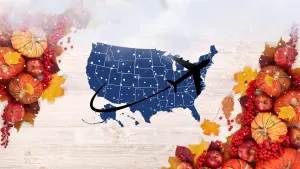
Skiers saved by friends after buried in separate avalanches near Pemberton, B.C.
Avalanche Canada has confirmed that two skiers were injured in separate slides east of Pemberton, B.C., on the weekend.
The organization's website says both incidents happened Saturday, each one involving a fully buried skier who was rescued by people in their group.
Both victims were airlifted by Pemberton SAR to hospital after being smashed against trees and suffering various injuries while being swept along by the snow.
Twelve people have died in six separate avalanches across the province in 2023, including three people who died while heli-skiing near Invermere, B.C., last Wednesday.
MUST SEE: Deadly B.C. avalanche highlights heli-skiing risk, but industry stresses safety
Avalanche Canada has repeatedly warned people to make "conservative, low-consequence choices'' about which terrain they choose to explore, if they head out at all.
It says the "deep and persistent'' problem related to the unstable snowpack still affects most slopes in the B.C. backcountry and is now complicated by newly formed, touchy wind slabs.
Slabs, which are layers of stiff, wind-deposited snow, have been seen at all elevations and on all aspects of coastal mountains, the website says. When triggered, they can slice down to the weakest part of the snowpack, causing large and dangerous avalanches.

Avalanche Canada says layers of unstable snow are difficult to spot because they're very deep. Backcountry conditions will only become more dangerous with warmer spring weather, it says. (submitted by Avalanche Canada)
'Unstable snow is hard to spot'
Ryan Buhler, a forecast program supervisor with Avalanche Canada, said last week that traces of instability in the snowpack can be difficult to spot, given the weak layers of snow are buried deep. He warned spring weather will make conditions even more dangerous.
"We know sunny weather can create a false sense of security and lure people out into avalanche terrain, even though unstable conditions exist,'' Buhler said in a statement.
"Even 30 minutes of sun can have a significant impact on the snowpack at this time of year,'' he added.
Interior Health, which provides services in the area where all of B.C.'s avalanche fatalities happened this year, has urged outdoor enthusiasts to "consider delaying a backcountry trip until conditions are safer.''
Avalanche Canada has compared this season's snowpack with conditions last seen in the winter of 2002-2003, when 25 people lost their lives in B.C.'s backcountry, making it one of the province's worst years on record for avalanche fatalities.
The number of deaths recorded so far this season is the highest number since 2015-2016 and the fourth highest over the past two decades.
People heading into the backcountry are urged to check the avalanche forecast ahead of time. An avalanche transceiver, snow probe and snow shovel are essential, along with practice in their use, according to officials.
WATCH: Snowboarder narrowly escapes this avalanche
This article was originally published for CBC News. With files from Jessica Cheung, Anne Levasseur and The Canadian Press









